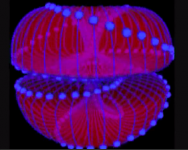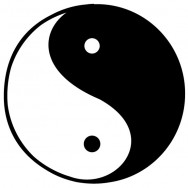There are many ways to experience time. Our society dissects the movements of the cosmos, turning slices of time into clocks and calendars. Within those structures time can seem to move at very different speeds – when I’m bored or watching the clock, minutes can pass by very slowly, and when I’m enjoying myself the hours and days pass by very fast. How do these senses of time, the first known as “cosmological time” and the latter “phenomenological time” connect with each other? Ricoeur says it is through a third time—”narrative time”.
My new habit is to turn concepts into diagrams to help me understand them. The picture below is adapted from Paul Ricoeur’s analysis of philosophy of time in Narrative and Time, and mixed with Campbell’s thoughts on eternity.

Phenomenological time is the time of experience – it can feel as if it moves fast, slow or even stop altogether.
Cosmological time is the time of the celestial movements of Earth, our sun, our moon, and the stars and galaxies. It is the time we keep track of in our calendars and with our watches.
Narrative time is a bridge between the time that our consciousness experiences, and the time of celestial movements. It is the bridge between what is inside our bag of skin, and what is outside. Narrative, story-telling, the linking of events in a causal chain, gives us identity and helps us make sense of this divide between inside and out.
Outside of time is eternity.
Something I’ve been pondering is the connection between eternity and my internal sense of time. Could there be a circular link between the two?
I envisage a kind of like a black hole from within ourselves to the eternal, and from the eternal back to our internal being.
Can eternity exist within phenomenological time in the same way that and cosmological time exists within eternity?

In this sense within the pink spheroids those experiencing phenomenological time might keep track of a linear sense of cosmological time, which will die when our universe eventually collapses. Out of the collapse I imagine a new universe will expand, and time will exist anew.
Outside of all of this chaos, outside of the pink spheroids, we see black space, dark matter, the eternal no-thing. And within our selves, a some-thing, I believe we contain a sense of this eternal no-thing.

We can relate the eternal something and eternal nothing like yin and yang. Neither could be without its opposite, and each contains a bit of the other.